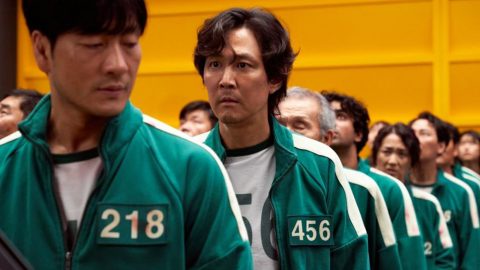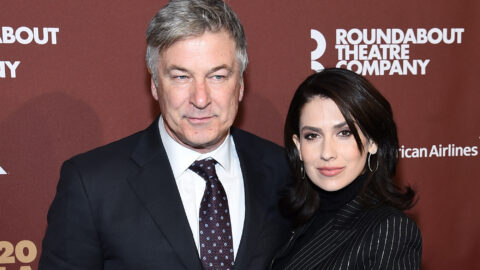
The world of Fallout is pretty grim. It’s been 200 years since society destroyed itself with nuclear weapons, yet civilization is yet to recover. Water is scarce, bloodthirsty bandits are everywhere, and even the cockroaches have mutated into hideous monsters (though there’s no sign of Keith Richards). But hey – every mushroom cloud has a silver lining.
Unlike fellow post-apocalyptic shows The Last Of Us and The Walking Dead, Fallout is a dark comedy that finds laughter in ludicrously terrible situations. When Vault 33 – a sealed, seemingly-utopian underground shelter where residents have lived and died for two centuries – is cracked open by raiders, it’s not gunfire and screaming we hear, but syrupy-sweet love song ‘Some Enchanted Evening’, which continues playing even as a bandit is cut in half by a door.
Because vault overseer Hank MacLean (Kyle MacLachlan) is kidnapped during this attack, his daughter Lucy (played by Yellowjackets’ Ella Purnell) heads into the wastes of California on a desperate rescue mission. Along the way, she meets The Ghoul (Walton Goggins) – a pre-war actor who’s been turned into a noseless, near-immortal gunslinger thanks to radiation – and Maximus (Aaron Moten), a would-be knight in the technology-hoarding Brotherhood Of Steel militarist group. It’s a brilliant sprawl of perspectives: Lucy is comically naive to the outside world’s brutality, while two centuries of survival have pushed The Ghoul, now a cutthroat Clint Eastwood caricature, in the opposite direction. Maximus is the middle-point of the two – he’s generally quite kind, but after years of being bullied, handles being given a hulking suit of Iron Man-style Power Armour about as well as you’d expect.

Throw in Lucy’s weedy brother Norm (Moisés Arias), who stays at Vault 33 to investigate how raiders got in, and you’ve got a compelling yet crowded cast. With only eight episodes in the season, the first few are spent trying to introduce and keep up with everyone, and frequent jumping around means nobody gets enough screen time. It’s particularly frustrating because each character is so gripping. Whether it’s The Ghoul delivering a charismatic tongue-lashing before a gory shootout or seeing Lucy’s positive attitude clash with wastelanders who hate her privileged guts, you’re always left wanting more – sometimes to a fault, as early episodes struggle to cram everything in.
Likewise, Fallout takes a bit of time to settle on a tone. While it initially leans heavily on slapstick humour, there’s a steady improvement when these gags become fewer and more outlandish. Highlights include a snake oil salesman getting too handsy with a chicken; and Matt Berry’s charming robot who likes harvesting other people’s organs. Director Jonathan Nolan (Westworld) shows a deft understanding of the source material throughout – peppering each episode with references to Bethesda’s beloved video game series.
It’s visually engrossing too. The Wasteland itself is mostly nuke-bleached beige, but its larger-than-life inhabitants – some deadly, some deadbeat – pack all the colour you need. Incredible costume design and practical effects, paired with subtle CGI, means everything looks fantastic – not that you’ll appreciate that while looking down the throat of a monstrous ‘gulper’, which has hundreds of slimy fingers in its maw instead of teeth. All of this is soundtracked by a retrofuturistic collection of chirpy ‘40s and ‘50s pop songs, which (besides being incredibly catchy) ensures no amount of gory ultraviolence or dark twists can bring the series’ peppy vibe down for long.
Eventually, the jumping-around becomes less jarring when all of its characters are finally locked onto the same story. It culminates in a jaw-dropping action sequence, while drawn-out stories like Norm’s investigation and The Ghoul’s pre-war flashbacks get brilliant payoffs. It’s a shame that everything takes so long to come together, because by the time it does, you’ll be thoroughly hooked.
Fallout is streaming now on Prime Video
The post ‘Fallout’ review: learn to love the bomb in this fun yet flawed adaptation appeared first on NME.






